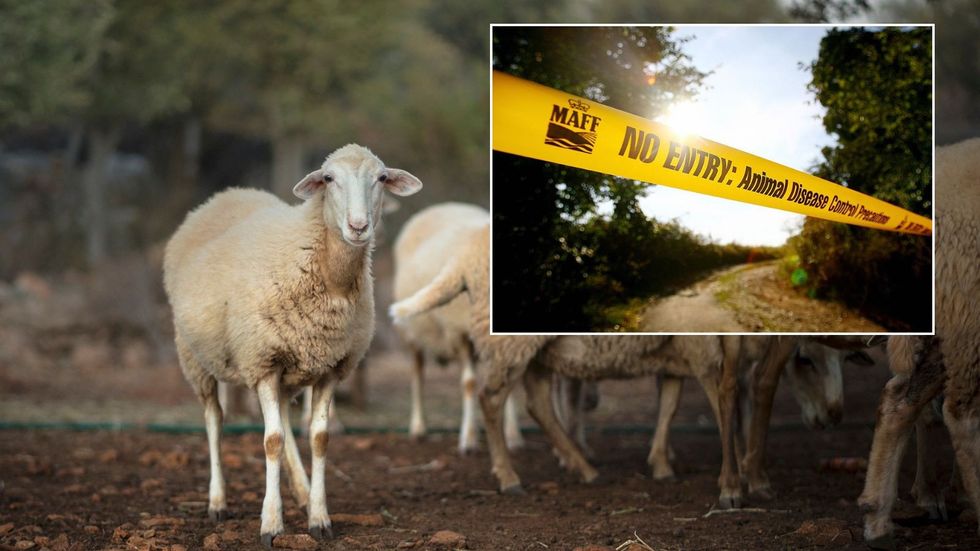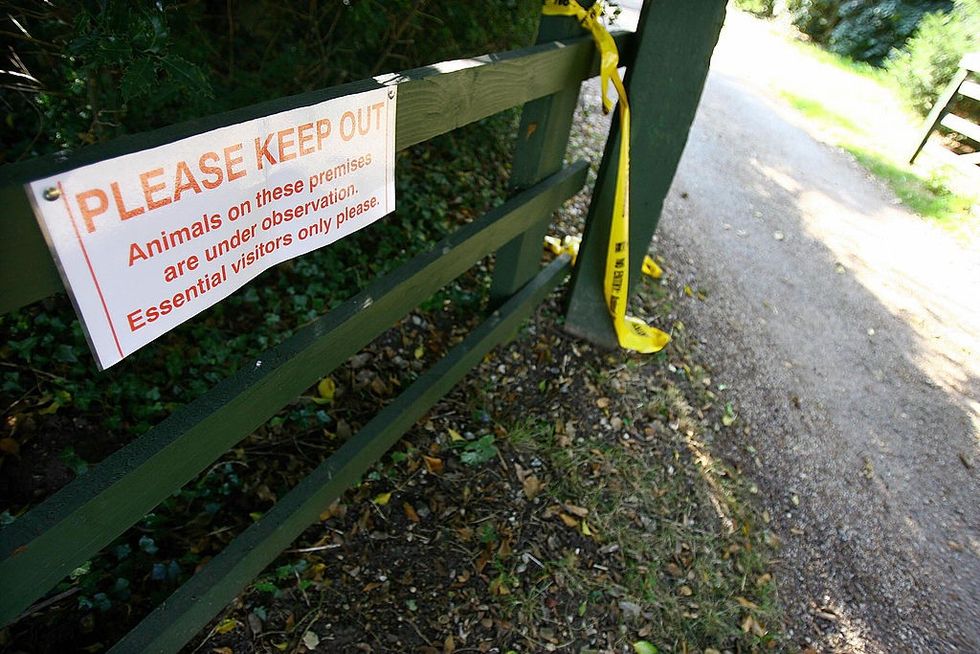Bluetongue farm virus risks devastating impact on UK as swarms of infected midges sweep in from Europe

Farmers are calling for the development of a vaccine to help save their livestock
Don't Miss
Most Read
A new strain of an animal virus is expected to spread across England, experts have warned as livestock farmers face a destructive impact.
There is a "very high probability" bluetongue virus will spread by infected midges which have swept in from northern Europe.
In England, there have been 126 cases on cattle and sheep farms - which does not affect people or food safety.
Farmers are now calling for the development of a vaccine after one was given emergency approval in the Netherlands following the discovery of more than 6,000 cases of the new strain, known as BTV-3.

A new strain of an animal virus is expected to spread across England, experts have warned as livestock farmers face a destructive impact
|Getty
The virus could kill around 30 per cent of a sheep herd, while the mortality rate is lower with cattle.
The disease triggers tongue and mucous membrane lesions, problems with swallowing, lameness and stiffness - which as a result affects animal welfare and leads to a reduction in milk yields.
A spokesperson for the Department for Environment, Food and Rural Affairs (Defra) said the Government was "actively engaging" with vaccine manufacturers on the development.
Cattle farmer David Barton - chair of the National Farmers Union's (NFU) livestock board - said farmers were "anxious to protect their livestock" but that there were unsure about the vaccine approved in the Netherlands.
LATEST DEVELOPMENTS:
He said: "As this is a very new vaccine, there are still questions to be answered - not least about the cost of the vaccine, how it will be rolled out, and what support the government can offer to get it deployed quickly and efficiently."
Last year's breakout was the first in the UK since 2007.
It can affect ruminants, such as sheep, cattle, goats and deer, and camelids like llama and alpaca.
Since November, there have been 119 cases in cattle and seven cases in sheep across Kent, Norfolk and Suffolk.

The disease triggers tongue and mucous membrane lesions, problems with swallowing, lameness and stiffness - which as a result affects animal welfare and leads to a reduction in milk yields
|Getty
According to the latest data, the most recent case was confirmed on March 8.
Research programmes are in place to determine how the culicoides midges are spreading the disease.
"The temperature that the midges become active at is lower than the temperature at which the virus can be transmitted so actually knowing the midges are up and running means a little while later we might see bluetongue transmission," Dr Marion England, who is overseeing the national surveillance of culicoides midges told the BBC.
She added: "It only takes one midge bite to transmit the virus so one infected midge can bite an animal once and that animal will have a fully developed infection."











